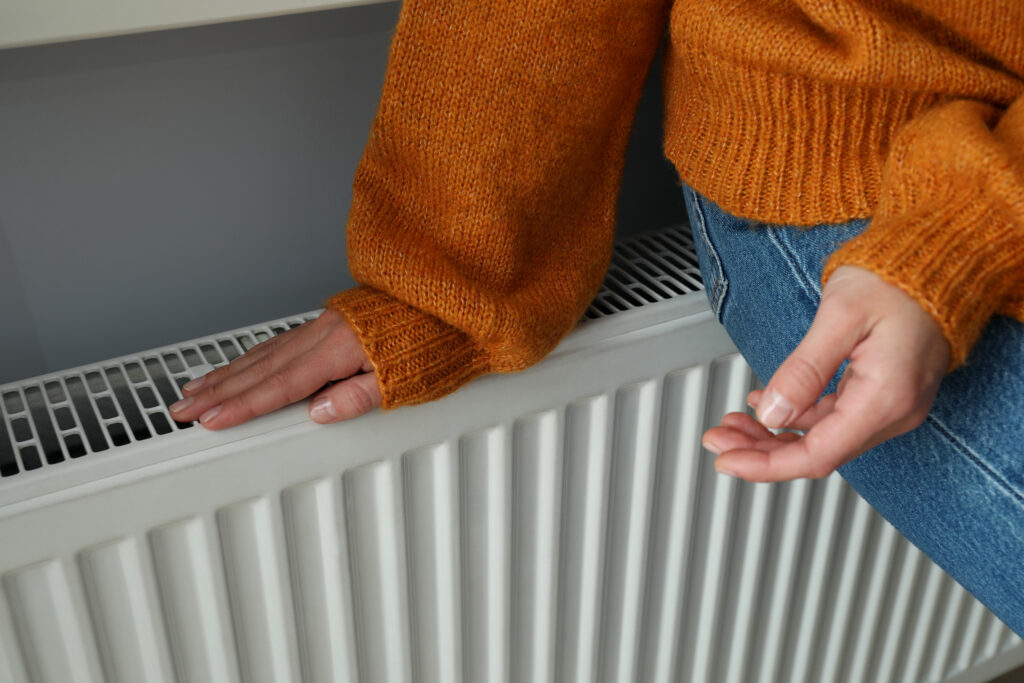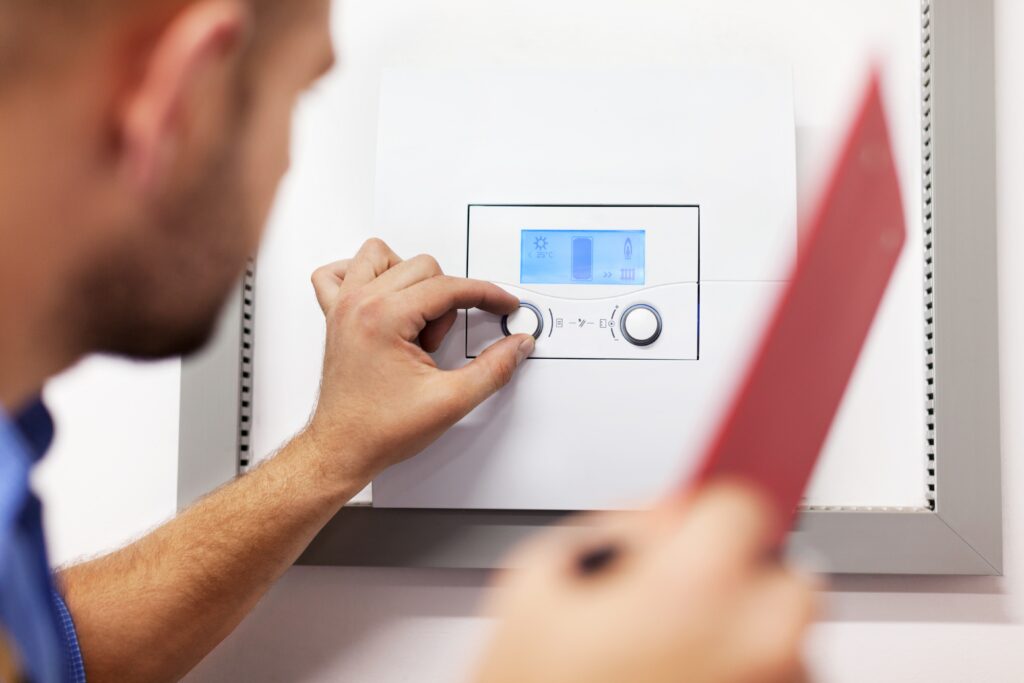Keep Your Boiler Running Over Winter: Essential Tips for Efficient Heating
Winter is tough on heating systems, making it crucial to keep your boiler in peak condition to ensure comfort, efficiency, and safety. With colder months ahead, preparing your boiler for the season can save you from unexpected breakdowns, reduce energy bills, and maximise heat efficiency in your home. In this guide, we’ll explore effective tips to maintain your boiler’s performance and cover common questions like “How many radiators can I run off my boiler?” so that you’re fully prepared for winter.
How Many Radiators Can I Run Off My Boiler?
One of the most important questions in preparing your boiler for winter is understanding its capacity, especially if you’re considering expanding your heating setup. The answer to “How many radiators can I run off my boiler?” depends on your boiler’s output, typically measured in kilowatts (kW). Generally:
- Combi Boilers are suitable for small to medium-sized homes with an output of 24-30kW, typically handling around 8 to 10 radiators.
- System Boilers are more powerful, designed for larger homes, with capacities of 35-42kW, enabling them to support 15-20 radiators.
- Regular Boilers work similarly to system boilers and are ideal for homes with high hot water demands, supporting multiple radiators depending on their kW rating.
These numbers serve as a rough guide, and individual circumstances like home insulation, room sizes, and layout will influence the number of radiators your boiler can efficiently support. To ensure your boiler’s capacity aligns with your heating needs, consult a qualified heating engineer.
Schedule an Annual Boiler Service
Regular servicing is key to a well-functioning boiler. During an annual service, a professional heating engineer checks your boiler’s components, inspects for leaks, and ensures that it operates safely. This yearly maintenance can identify potential issues early, reduce the risk of breakdowns, and even improve energy efficiency. In addition, regular servicing keeps your boiler in compliance with warranty conditions and extends its operational life.
Bleed Your Radiators for Even Heat Distribution
Air pockets trapped in radiators can reduce their efficiency, causing cold spots and hindering proper heat distribution. Bleeding your radiators at the start of winter allows trapped air to escape, so your boiler doesn’t have to work as hard to heat your home. Here’s a quick guide:
- Turn off your heating.
- Place a cloth under the radiator valve.
- Use a radiator key to open the valve slightly and let the air escape.
- Close the valve once water begins to flow, then check your boiler pressure and top it up if necessary.
This simple process improves radiator efficiency, allowing for more consistent warmth throughout your home.
Monitor and Maintain Boiler Pressure
Your boiler’s pressure should ideally stay between 1.0 and 1.5 bar. If the pressure falls below this level, your boiler may struggle to heat your radiators properly; if it’s too high, it could damage your system. To check pressure, look at your boiler’s pressure gauge, typically on the front panel. If the pressure drops after bleeding radiators, you may need to top it up by following the manual’s instructions. Keep an eye on pressure throughout the winter, as consistent performance depends on it being within the optimal range.
Insulate Pipes to Prevent Freezing
Frozen pipes are a common winter problem that can lead to burst pipes and costly water damage. Insulating pipes, especially those in unheated spaces like attics or garages, is an effective preventative measure. Pipe insulation is affordable and easy to install, reducing the risk of freezing and helping retain heat within the system. For homes with hot water tanks, adding an insulation jacket can also help maintain water temperature and reduce heating costs.
Consider a Smart Thermostat for Better Control
Smart thermostats offer better heating control, allowing you to adjust your boiler settings remotely. These devices can help you save on energy costs by optimising heating schedules based on your daily routine. Smart thermostats typically come with mobile app compatibility, so you can warm up your home before you arrive, ensuring comfort without wasting energy. Advanced models even adjust according to weather conditions, providing additional efficiency.
Use Timers and Thermostatic Radiator Valves (TRVs) Wisely
Programming your heating system to turn on and off at set times can lead to significant energy savings. Set your boiler to switch on 30 minutes before you wake up or return home rather than running it all day. Thermostatic radiator valves (TRVs) allow you to customise the temperature in each room, so you can focus heating on rooms you use most and save energy in less-used spaces. This is especially useful if different rooms require varied temperatures.
Keep the Boiler Vent and Flue Clear
Ensure that the area around your boiler’s vent and flue is clear of any debris or snow during winter. A blocked vent can reduce airflow, compromising efficiency and posing a safety hazard. Snow or obstructions around the vent can also prevent exhaust gases from escaping, potentially leading to carbon monoxide buildup. Regularly inspect the area around your boiler, especially after heavy snowfall, to ensure everything remains clear.
Know How to Reset Your Boiler
Understanding how to reset your boiler can save you time if minor faults occur, especially during cold snaps when your heating is essential. Most boilers have a reset button, and the process usually involves pressing it for a few seconds. Refer to your boiler’s manual for specific instructions, and only reset it if you feel comfortable doing so. For recurrent issues, consult a professional heating engineer to identify the underlying problem.
Consider a Power Flush if Your Heating System is Older
If your radiators still have cold spots after bleeding, or if your heating system is over five years old, consider scheduling a power flush. This procedure uses a cleaning solution to remove sludge and debris that accumulate over time, restoring proper water flow. A power flush improves heat distribution, boosts efficiency, and helps prolong the life of your boiler.
Install a Carbon Monoxide Detector
A carbon monoxide (CO) detector is a crucial safety device if you have a gas boiler. Faulty boilers can leak CO, a colorless, odorless gas that can be lethal. Placing a CO detector near your boiler and testing it regularly is a simple but essential measure to protect your household.
Check for Warning Lights or Error Codes
Modern boilers display warning lights or error codes when there’s an issue. Learning to recognize these indicators can help you troubleshoot minor problems and understand when it’s time to call a professional. Consult your boiler’s manual for guidance on common error codes, or reach out to a qualified engineer if the issue persists.
Use the Frost Protection Mode if Available
Some boilers come equipped with a frost protection setting that activates the heating when temperatures drop too low. This feature is valuable if you’re away from home during a cold spell, as it prevents freezing within your system. Check your manual to see if your boiler has this option, and activate it to protect your pipes during extreme cold.
Upgrade an Old Boiler for Higher Efficiency
If your boiler is over 15 years old, upgrading to a newer, more energy-efficient model can reduce energy costs significantly. Modern boilers are built with advanced technology, offering higher efficiency and lower emissions, which can help you save money in the long run while keeping your home warm and comfortable.
Frequently Asked Questions
Q1: How many radiators can I run off my boiler?
The capacity depends on your boiler’s kW rating. Combi boilers around 24-30kW can usually run 8-10 radiators, while system or regular boilers with 35-42kW ratings can support up to 15-20 radiators.
Q2: How often should I bleed my radiators?
Bleed your radiators at least once a year, typically at the start of winter, and whenever you notice cold spots.
Q3: How do I know if my boiler pressure is too low?
Check your boiler’s pressure gauge. If it falls below 1.0 bar, your system may need a top-up. Refer to your boiler’s manual for instructions.
Q4: Do I need a power flush?
If your heating system is over five years old or has frequent cold spots, a power flush may help remove sludge and restore heat efficiency.
Q5: Should I leave my boiler on all day in winter?
No, it’s more efficient to use timers and a thermostat to heat your home only when needed.
Q6: How can I prevent frozen pipes?
Insulate exposed pipes, especially in unheated areas, and use frost protection mode if available.
By following these steps, you’ll improve your boiler’s efficiency, reduce energy costs, and keep your home warm and safe during the winter. Proactive maintenance can save you money and the hassle of unexpected repairs, allowing you to enjoy a worry-free winter season.






